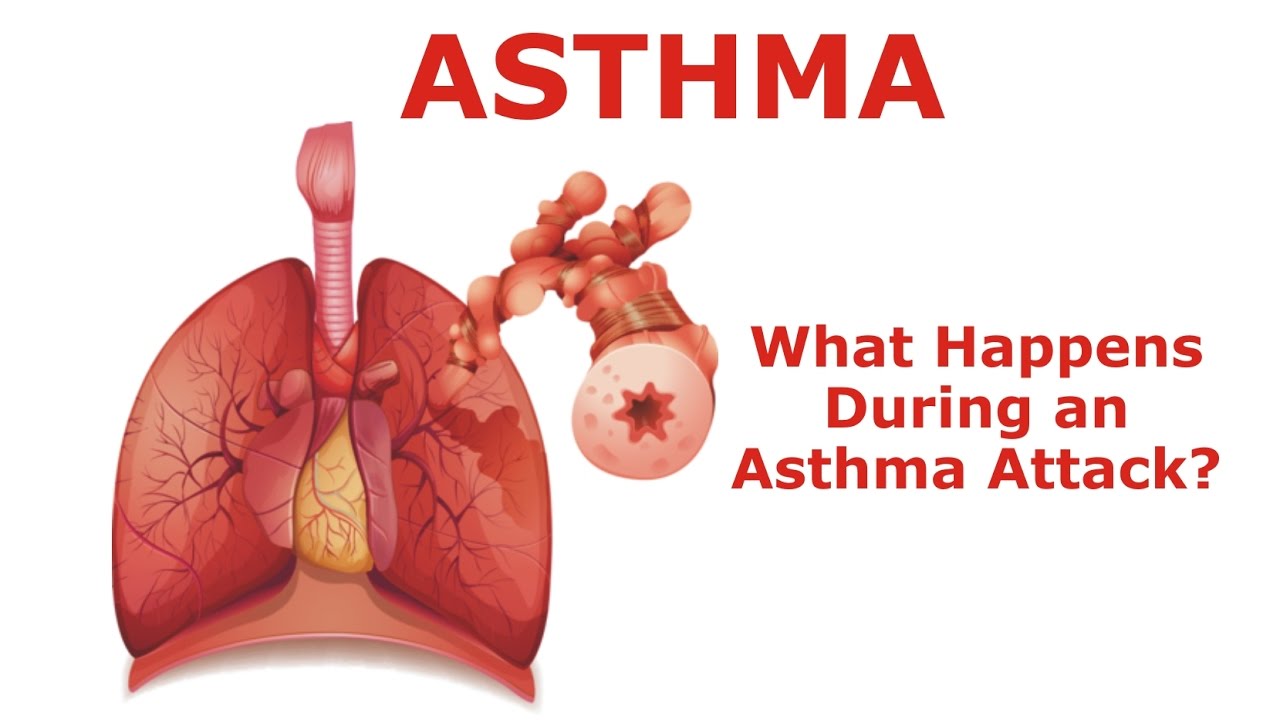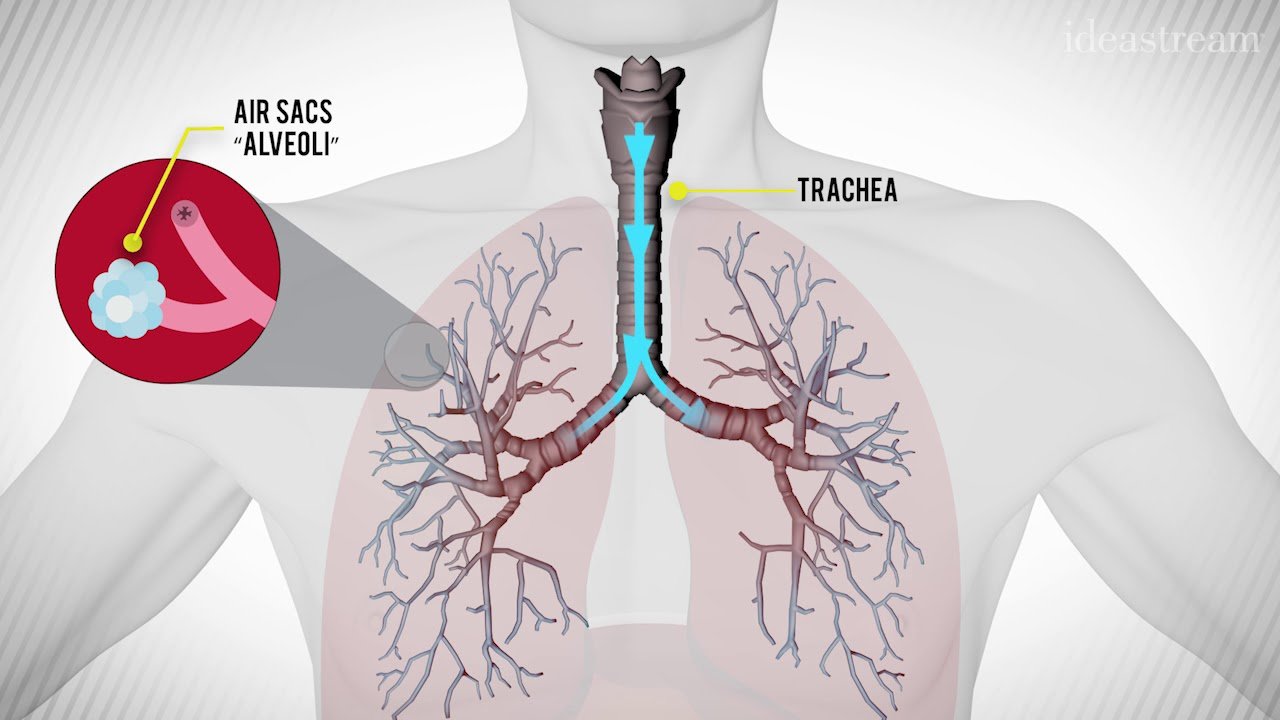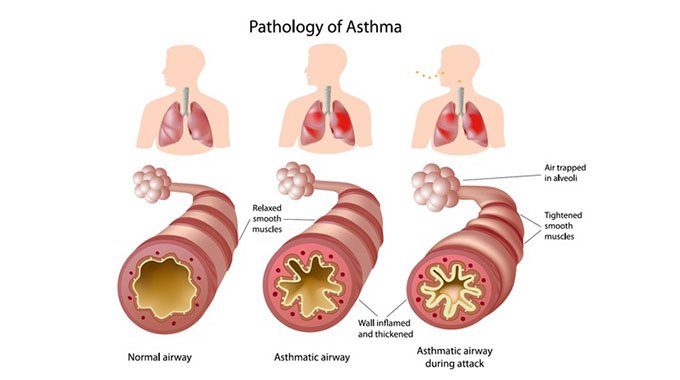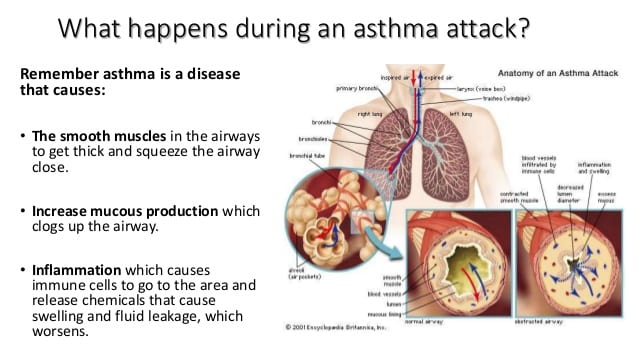What Are The Treatments For Asthma
If you have asthma, you will work with your health care provider to create a treatment plan. The plan will include ways to manage your asthma symptoms and prevent asthma attacks. It will include
- Strategies to avoid triggers. For example, if tobacco smoke is a trigger for you, you should not smoke or allow other people to smoke in your home or car.
- Short-term relief medicines, also called quick-relief medicines. They help prevent symptoms or relieve symptoms during an asthma attack. They include an inhaler to carry with you all the time. It may also include other types of medicines which work quickly to help open your airways.
- Control medicines. You take them every day to help prevent symptoms. They work by reducing airway inflammation and preventing narrowing of the airways.
If you have a severe attack and the short-term relief medicines do not work, you will need emergency care.
Your provider may adjust your treatment until asthma symptoms are controlled.
Sometimes asthma is severe and cannot be controlled with other treatments. If you are an adult with uncontrolled asthma, in some cases your provider might suggest bronchial thermoplasty. This is a procedure that uses heat to shrink the smooth muscle in the lungs. Shrinking the muscle reduces your airway’s ability to tighten and allows you to breathe more easily. The procedure has some risks, so it’s important to discuss them with your provider.
Work With Your Healthcare Team To Control Your Asthma
Asthma is variable your asthma symptoms can get better or worse. If you know how to take care of your asthma every day, you can avoid getting asthma attacks.Your health-care team can teach you how to manage your asthma symptoms. They can help you fill out a written asthma action plan. Your asthma action plan tells you exactly how to treat your symptoms, and what to do when your symptoms get worse.
What To Do When Having An Asthma Attack
If you have asthma, then its important that you know what to do and not do if you have an asthma attack.
Its hard to predict exactly when an asthma attack will occur, so its also important to discuss your condition with your family, friends and employer. Its essential that they all become better acquainted with what happens and how to react and help if you have an asthma attack.
How Long Do Asthma Attacks Last
There is no set time for how long an asthma attack lasts. As a guideline, you might only have a mild asthma attack for a matter of minutes before you manage to get your symptoms under control and they begin to ease off.
If you have severe asthma, an asthma attack can last longer, from hours to days. Severe asthma is harder to get under control and often doesnt respond in the same way to medications as mild asthma. A severe asthma attack is a medical emergency and you need to call for help for emergency help straight away.
What Is Good Asthma Care

Your doctor or nurse will tailor your asthma treatment to your symptoms. Sometimes you may need to be on higher levels of medication than at others.
You should be offered:
- care at your GP surgery provided by doctors and nurses trained in asthma management
- full information about your condition and how to control it
- involvement in making decisions about your treatment
- regular checks to ensure your asthma is under control and your treatment is right for you
- a written personal asthma action plan agreed with your doctor or nurse
It is also important that your GP or pharmacist teaches you how to properly use your inhaler, as this is an important part of good asthma care.
Know The Signs Of An Asthma Attack
Youre having an asthma attack if:
- your blue reliever isn’t helping, or you need to use it more than every four hours
- you’re wheezing a lot, have a very tight chest, or you’re coughing a lot
- you’re breathless and find it difficult to walk or talk
- your breathing is getting faster and it feels like you can’t get your breath in properly
You may have all of these signs and symptoms. Or you may have just some of them. For example, you may not wheeze.
Know your early warning signs
An asthma attack happens when your symptoms get much worse. This can happen quite suddenly or can build up gradually over a few days.
You can stop an asthma attack before it happens, or make it less serious so you dont end up in hospital, by recognising when your symptoms are getting worse.
Will My Wheezing Or Coughing Be Worse
Not necessarily. You might be surprised to learn that you may not have more of these than usual during a severe asthma attack. So donât judge how bad your asthma attack is based on how much you wheeze or .
In fact, very severe asthma attacks may affect your airways so much that you donât get enough air in and out of your to make a sound or cough.
Avoid A Contact With Allergen
The most common cause of asthma are allergies, so the most effective method of preventing another attack, in this case, will be to avoid contact with a specific allergen.
Allergic To House Dust Mites
In case of allergy to house dust mites, it is good to use acaricides, agents that cause agglomeration of allergenic mite excrements, and their remains.
You can use covers for bedding that do not let mite excrement pass.
Also, keep the right temperature and humidity in your bedroom.
Besides, it is worth washing the pillow and quilt every 2-3 weeks at 60 degrees; this will significantly reduce your asthma symptoms.
Pollen Allergy
It is a very common allergy that causes acute asthma attacks. If this is your problem read the pollen calendar not to be surprised by the appearance of symptoms such as a runny nose, sneezing, tearing, and after that, coughing, wheezing, and shortness of breath.
During the pollen season, you should ventilate your home in the morning or late afternoon.
Outside of closed rooms, you must use protective glasses, avoid places with the highest pollen concentration, i.e., near dusty trees, meadows, or pastures.
When you get home, it is best to wash anything that has been exposed to pollen nose, face, ears, exposed parts of the body to wash off this allergen.
Immunotherapy is a good idea. Desensitization can significantly alter your responses to pollen. This is a very good method that is safe and highly effective in an allergists hands.
Food Allergy
What Is An Asthma Action Plan
Your healthcare provider will work with you to develop an asthma action plan. This plan tells you how and when to use your medicines. It also tells you what to do if your asthma gets worse and when to seek emergency care. Understand the plan and ask your healthcare provider about anything you dont understand.
What Are The Symptoms Of An Asthma Attack
The most common symptoms include:
Mild to Severe
- Disrupted sleep due to asthma symptoms & breathing difficulty
- Daytime symptoms 4 or more times per week
- Inability to exercise normally without breathing issues
- Decreased activity due to asthma
- Getting a cold/flu
If you experience any of the above symptoms, book an urgent appointment with your healthcare provider. An asthma attack could be on its way. The timely help can prevent dangerous consequences.
Life-Threatening
- Excessive cough, wheeze and chest tightness
- Difficulty speaking due to asthma
- Experiencing shortness of breath at rest
- Lips or nail beds turning blue
- Reliever medication isnt helping
- Sweating
Biologics Target The Late Phase Asthma Attack
In either case, these biologics target the late phase asthma attack. Their job is to make IL5 unable to recruit eosinophils. The goal here is that eosinophil levels will decrease. And this will improve asthma control.
Basophils. They are another white blood cell with a high affinity for IgE antibodies. In our case, dust mite IgE antibodies bind with basophils. This causes them to release their contents. These contents include histamine and cytokines. Two cytokines secreted are IL4 and IL13. These same cytokines contributed to sensitization and the early phase asthma attack.3,4
Interleukine 4 . They are cytokines that tell cells to make IgE antibodies.
Interleukine 13 . They are cytokines that directly cause airway inflammation.
A called binds with IL4 receptors. It renders IL4 and IL13 harmless. It was originally approved by the FDA for atopic dermatitis. But, more recently it has been approved for moderate or severe asthma.
Give Yourself A Break
Before you return to your daily routine, give yourself time to regenerate. An asthma attack puts a heavy burden on the body, so try to get back into good shape.
Please, dont ignore that part as you may lead to a situation where your symptoms get worse. You might require medical attention in the case of severe asthma attacks.
Also, after an attack, anxiety about the next one increases, which may have a bad effect on your mental health.
Hold on with going back to the office. Ask your employer for a few days off, and preferably consult your doctor about returning to your daily activities. Let the specialist assess whether you are ready to go back to work.
When you rest at home, ask family members to take over your responsibilities. Let someone else take the nets out and go shopping; you dont want to overexert yourself if there is no need to.
Also, get good-quality sleep. Avoid using electrical appliances that emit blue light before going to bed. Besides, go to bed early and wake up with the sunrise.
Living according to your natural circadian rhythm has healing properties that can be a great part of your treatment plan.
Identifying Asthma Triggers With Allergy Testing

Determining what triggers a persons asthma is often difficult.
Allergy testing is appropriate when there is a suspicion that some avoidable substance is provoking attacks. Skin testing can help identify allergens that may trigger asthma symptoms. However, an allergic response to a skin test does not necessarily mean that the allergen being tested is causing the asthma. The person still has to note whether attacks occur after exposure to this allergen. If doctors suspect a particular allergen, a blood test that measures the level of antibody produced in response to the allergen can be done to determine the degree of the person’s sensitivity to the allergen.
The Normal Respiratory System
To understand what happens in you need to be familiar with the normal breathing system and how the lungs and airways are arranged.
Normally, air entering through the mouth and nose travels through the main airway through a series of smaller branching airways called bronchi. The bronchi divide up into even smaller airways called bronchioles, which end in millions of tiny air sacs called alveoli.
When air enters the alveoli, the oxygen it contains passes through the thin membrane covering each sac into surrounding blood vessels. The oxygen attaches itself to red blood cells which then circulate around the body, releasing the oxygen into the body tissues.
What happens during an asthma attack?Book now
How Is Asthma Treated
Take your medicine exactly as your doctor tells you and stay away from things that can trigger an attack to control your asthma.
Everyone with asthma does not take the same medicine.
You can breathe in some medicines and take other medicines as a pill. Asthma medicines come in two typesquick-relief and long-term control. Quick-relief medicines control the symptoms of an asthma attack. If you need to use your quick-relief medicines more and more, visit your doctor to see if you need a different medicine. Long-term control medicines help you have fewer and milder attacks, but they dont help you while you are having an asthma attack.
Asthma medicines can have side effects, but most side effects are mild and soon go away. Ask your doctor about the side effects of your medicines.
Remember you can control your asthma. With your doctors help, make your own asthma action plan. Decide who should have a copy of your plan and where he or she should keep it. Take your long-term control medicine even when you dont have symptoms.
Symptoms Of An Asthma Attack
Signs that you may be having an asthma attack include:
- your symptoms are getting worse
- your reliever inhaler is not helping
- you’re too breathless to speak, eat or sleep
- your breathing is getting faster and it feels like you cannot catch your breath
- your peak flow score is lower than normal
- children may also complain of a tummy or chest ache
The symptoms will not necessarily occur suddenly. In fact, they often come on slowly over a few hours or days.
Care Advice For Asthma Attack
How Do You Stop An Asthma Attack Without An Inhaler
If you are diagnosed with asthma, you should make sure you have an inhaler with you at all times. However, if a worst case scenario occurs and you experience when you dont have a reliever inhaler with you, there are practical steps you can take to ease your symptoms.
- Stay as calm as you can find a way to reduce any anxiety, such as holding someones hand or playing music
- Sit upright this will help keep your airways open
- Breathe slowly and deeply slowing down your breathing can reduce the risk of hyperventilating
- If something appears to have triggered your asthma, such as breathing in cold air or being exposed to smoke, move away from the trigger
- Try breathing exercises the pursed lip breathing technique can help you deal with shortness of breath
- Have a drink containing caffeine there is some to suggest that caffeine can help improve airway function for up to four hours.
Asthma can be a life-threatening condition, so at the very least, aim to keep a spare reliever inhaler in your handbag, locker at work or coat pocket.
What To Do After An Asthma Attack:
One in six people who receive treatment at the hospital needs emergency treatment again within two weeks. Asthma attacks are not normal and you should not tolerate them.
Take the following key steps to prevent you having another attack in the future:
- Book an urgent appointment with your healthcare provider
- Keep taking your asthma medication as prescribed
- Take the rest of the day to recover after the attack
It is important to know that the majority of severe asthma episodes can be avoided by having good asthma control.
After An Asthma Attack: What To Do At Home
“How quickly you recover at home depends on how severe your attack was and what triggered it,” said Khatri. “If your attack was caused by an irritant, you should recover quickly. If your attack was caused by an infection, it may take a few days.” In either case, you should follow all of your doctor’s instructions, keep your follow-up appointments, rest, and drink plenty of fluids as you gradually return to normal activities.
However, you should get some help for an asthma attack or after an asthma attack if:
- Your asthma symptoms get worse
- Your peak flow numbers are not getting better or are going down
- You are struggling to walk or talk because of trouble breathing
- You are struggling to breathe
- Your quick-relief medicine is not helping
- Your lips or fingernails turn blue
What Is The Treatment For Asthma

Specific treatment for asthma will be determined by your doctor based on:
-
Your age, overall health, and medical history
-
Your symptoms
-
Your tolerance for specific medications, procedures, or therapies
-
Expectations for the course of the disease
-
Your opinion or preference
As of yet, there is no cure for asthma. However, it can often be controlled with prescription medications that may help to prevent or relieve symptoms, and by learning ways to manage episodes.
What To Make Of This
The late phase is a lot more complex than I make it out to be here. But, this is all you need to know for now. It’s this late phase that causes your more severe asthma attacks. It’s usually the reason people get to the point they need to seek help for asthma. And many of our newer asthma medicines are aimed at this late phase.
What Do I Do If I Have An Asthma Attack
If you or a loved one is having an asthma attack and the symptoms donât get better quickly after following the asthma action plan, follow the “red zone” or emergency instructions and contact your doctor or right away. You need urgent medical attention.
1. Give asthma first aid.
If the person doesn’t have an plan:
- Sit them upright comfortably and loosen tight clothing.
- If the person has asthma medication, such as an inhaler, help them take it.
- If the person doesnât have an inhaler, use one from a first aid kit. Do not borrow someone elseâs. The medicine in it may be different than the needed rescue medicine. Also, using someone else’s inhaler has a slight risk of passing on an infection.
2. Use an inhaler with a spacer, if possible.
- Remove the cap and shake the inhaler well.
- Insert the inhaler into the spacer.
- Have the person breathe out completely and put their mouth tightly around the spacer mouthpiece.
- Press the inhaler once to deliver a puff.
- Have the person breathe in slowly through their and hold their breath for 10 seconds.
- Give a total of four puffs, waiting about a minute between each puff.
3. Use an inhaler without a spacer, if necessary.
4. Continue using the inhaler if breathing is still a problem.
5. Monitor the person until help arrives.
- Do not mistake drowsiness as a sign of improvement; it could mean asthma is getting worse.
- Do not assume that the personâs asthma is improving if you no longer hear wheezing.
6. Follow up.
After An Asthma Attack: Changing Your Asthma Management Or Asthma Attack Treatment
After an asthma attack evaluation, your doctor may want to step up treatment, step down treatment, change treatment, or increase your doctor visits, said Bernstein.
Some signs that your treatment plan may need to change include:
- Frequent asthma attacks
- Needing to take more asthma medication than prescribed
- Waking up at night with asthma symptoms
- Daytime activity limited by asthma
- Continued , congestion, and mucous production
- Poor peak flow rates
Knowing what to do after an asthma attack is part of learning how to manage your asthma. Each asthma attack is a chance to learn more about your asthma triggers and your asthma medications. Sharing this information with your doctor gives you and your doctor the opportunity to make the right adjustments to your asthma action plan â and that could mean fewer asthma attacks in your future.
Signs Of An Asthma Attack
To identify or spot early warning signs of asthma look for these signs:
- Wheezing
- Coughing that wont stop
- Shortness of breath
- Unexplained fatigue
- Frequent coughing
It is important to share these symptoms with your doctor as soon as you start to experience them. They will be able to provide you with proper care and treatment for it.
Asthma Attack A Guide To First Aid And Emergency Care For Asthma
Asthma can be an emergency. A sudden or severe asthma flare-up is sometimes called an asthma attack.
An asthma flare-up is a worsening of asthma symptoms and lung function compared to what you would usually experience day to day. An asthma flare-up can come on slowly, over hours, days or even weeks, or very quickly, over minutes.
If you or someone you care for are experiencing any of these signs, start asthma first aid.
Do not wait until asthma is severe.
Asthma Attack Causes And Symptoms
Asthma affects about 235m people worldwide, including both adults and children. The symptoms of asthma can be well controlled by regular medications and lifestyle choices, but sometimes an Asthma Attack occurs where the symptoms suddenly get worse.
Read on to discover the facts about asthma attacks, what causes them, the symptoms to look out for and common asthma attack triggers.
Early Phase Asthma Attack
This is the immediate response to an antigen, and causes allergy and/ or asthma symptoms in a matter of seconds or minutes. This response reaches its peak within 15-30 minutes and resolves within 1-2 hours.1 What happens here is dust mite IgE recognize, bind with, and release cytokines that communicate with
Mast cells. These are white blood cells that are randomly scattered along connective tissue of your skin, the conjunctiva of your eyes, and your respiratory tract. They were discovered in 1953, and are a special type of leukocyte called a granulocyte.2
Granulocyte. These are leukocytes that contain granules. Stimulation by cytokines causes them to degranulate.
Degranulate. This means they release their contents into the bloodstream. Among their contents are the mediators of inflammation.
How To Avoid Asthma Triggers

If you know what your asthma triggers are, then where possible, its beneficial to try to avoid them.
If theres a particular allergen culprit you know of, then keeping your home clean and dust-free can help. For example, you could consider swapping carpets for wooden floors to reduce the amount of dust build-up or hiring a cleaner so youre not personally exposed to dust when cleaning.
It can be more difficult to avoid asthma triggers completely when youre at work, especially if your asthma is occupational and linked to your working environment. In an ideal world, you could simply change jobs to something more suitable for your health, but in reality this isnt always feasible.
Let your employer or the HR department know about your asthma. You should be able to discuss the options available for optimising your work environment to be more suitable to your needs.
Keeping on top of your asthma management plan, working alongside your doctor or asthma nurse and making sure you take your inhalers or other asthma medications should help to control your symptoms. Making practical lifestyle choices is important too, like eating healthily, exercising and not smoking.
It can also be beneficial to learn an asthma breathing technique. There are various breathing techniques that can help asthma and knowing how to breathe properly could help if something unexpectedly triggers an attack.
